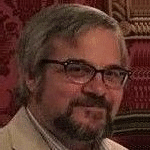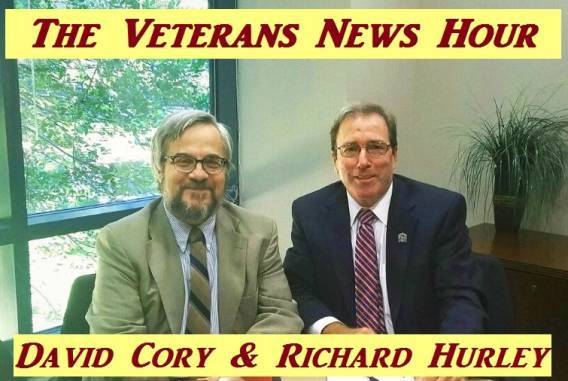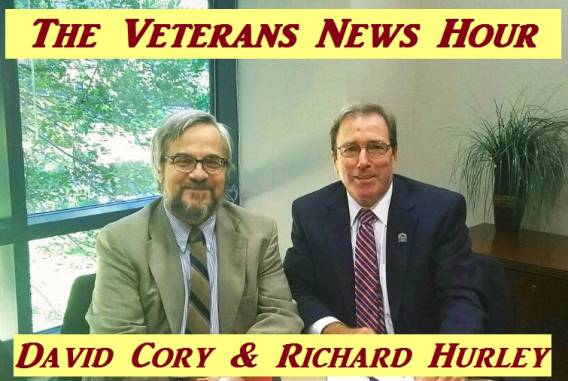The Veterans News Hour with David Cory and Richard Hurley
"In tonight’s show, thanks to the VA’s online program called “Make the Connection,” available on Youtube and other social media platforms, we will hear from some veterans and their families about their experiences dealing with the effects of military service as well as how they coped with making the transition from military to civilian life. The VA encourages people to share the “Make the Connection” interviews to help spread awareness, and that’s what we are going to do tonight.
In the first tape, we hear from a veteran named James. He left the Army feeling like a failure. He started drinking a lot, and his anger drove his family and friends away. But when one friend reached out and encouraged him to quit drinking, James decided to give it a try. After participating in AA, James’ entire life turned around.
“I didn’t think I was worth saving” (length: 4:07)
DAVID: In the next tape we hear from an Army veteran named Ray. When Ray left the Army, he couldn’t adapt to civilian life. He tried to cope by drinking. After a downward spiral, he ended up in prison. He connected with the Veterans Treatment Court, and his court-ordered mental health treatment saved his life. Now he gives back to the Veteran community.
“The Veterans Treatment Court turned things around” (duration 3:25)
RICK: In this next tape, we hear from a combat Veteran who saw a fellow soldier injured by an IED blast. After that, he felt on edge and aggressive, even after leaving the Army. A fight with his wife was the push he needed to get help. Prolonged exposure therapy helped treat his PTSD symptoms and gave him hope for the future.
“Exposure therapy helped this Army Veteran” (duration: 3:48)
DAVID: NEXT, we hear from a Navy veteran named Ted who served in Vietnam in 1967 and 1968. After Ted came home from Vietnam, he didn't feel at peace or that he fit in. Years later, he went to a Vet Center. Connecting with Veterans helped him realize others had experiences similar to his. Going through an outpatient PTSD program helped him get his life to a better place.
“It's never too late to deal with PTSD” (duration 4:16)
RICK: We next hear from an Army veteran named Keyla who served in Iraq as a nurse. The suffering she saw in war took a great toll on her. Back home, she had nightmares and felt detached. When a tribute to soldiers led to panic and crying, she went to a clinic, learned she had PTSD, and began therapy to overcome her challenges.
“Finding PTSD relief through effective treatment” (duration: 4:28)
DAVID: In the next interview, we hear from Rebecca Escobedo, the wife of a combat veteran. Rebecca met Bryan Escobedo online, and they soon struck up a long distance romance. After getting married, Rebecca discovered Bryan's combat experience had changed him. By taking a first step to reach out for help, she discovered resources available to help both of them adjust to a new reality.
“I didn’t even know what PTSD was” (duration: 5:10)
RICK: In the final interview for this evening we hear from Tiffany. When she first met her fiance, she knew he'd been in some horrific experiences in the military, but she didn't understand their full effect on him. Hear how she discovered the importance of supporting the Veteran in her life by patiently learning along with him as he learned the tools he needed to manage his challenges.
“A Veteran doesn't always ask for help” (duration: 3:46)










